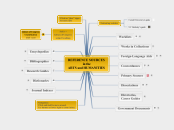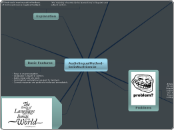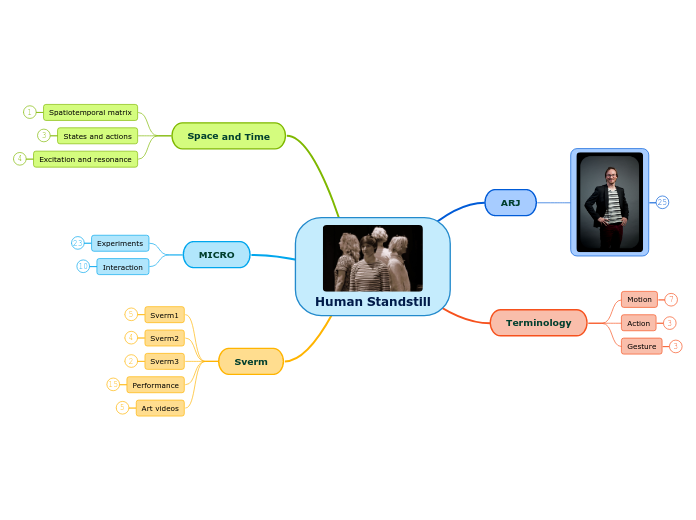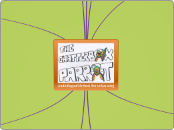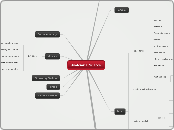REFERENCE SOURCES in theARTS and HUMANITIES
Government Documents
Government Documents
We usually think of these in relation to law, business, or the social sciences -- but don't forget the following U.S. government agencies that support research in the arts and humanities:
Smithsonian Institution
Library of Congress
National Endowment for the Humanities
National Endowment for the Arts
Department of Education
(See links in map.)
Department of Education
National Endowment for the Arts
National Endowment for the Humanities
Library of Congress
Smithsonian Institution
Navigation:
Click-and-hold to move around.
Use buttons at lower right to zoom in/out.
Journal Indexes
[Discipline]--Periodicals--Indexes
"Open Access" journals
Open Access Journals
These are journals that make government-funded research available free online. The guiding principle is that citizens should have ready access to research that they have paid for through their taxes.
Directory of Open Access Journals
Citation indexes
Citation Indexes
These are a specialized type of journal index. They show the references (footnotes and bibliographies) cited in journal articles. You can use this feature to:
Find more literature related to your topic.Assess the influence of a specific scholar; identify the most prominent scholars in the field.Arts and Humanities Citation Index (online)
Online databases
Print indexes
Dictionaries
These include not just dictionaries that give definitions of words (though they do include ones that specialize in the terminology of a specifc subject area or discipline). They also include dicitionaries that give biographical data on people; names and terms related to the history of places, events, etc.; and almost anything else that can be organized in a list of some sort.
They can be in print or online. Glossaries may be found on websites devoted to a specific subject. They can also be findable via metasites (websites that collect links to many sites on a specific subject or discipline).
[Discipline]--Dictionaries[Discipline]--Terminology
Other
Inventario general de insultos
Spanish language--Obscene words--Dictionaries
Invective--Dictionaries--Spanish
Dictionary of Worldwide Gestures
Body language--Dictionaries
Gesture--Dictionaries
Dictionary of Musical Themes
Instrumental music--Thematc catalogs
Pronouncing
[Subject]--Terminology--PronunciationNames, Personal -- Pronunciation[Subject]--Diction
Diction for Singers: a Concise Reference for English, Italian, Latin, German, French, and Spanish Pronunciation
The Well-Tempered Announcer: a Pronunciation Guide for Classical Music
Terminological
[Subject]--Dictionaries[Subject]--Terminology
Abington Dictionary of Theology (online)
Oxford Dictionary of Dance (print & online)
Dance--Dictionaries
Harvard Dictionary of Music
Music--Dictionaries
Dictionary of Theatre: Terms, Concepts and Analysis
Drama--Dictionaries
Theater--Dictionaries
Thames & Hudson Dictionary of Art Terms
Art--Dictionaries
Routledge Critical Dictionary of Feminism
Essential Theological Terms
Theology--Terminology
Shakespeare Glossary
Shakespeare, William, 1564-1616--Glossaries, etc.
Dictionary of Literary Terms and Literary Theory
Criticism--Terminology
Literature-Terminology
Historical
[Subject]--History--Dictionaries[Subject]--History--[Period]--Dictionaries
Historical Dictionary of Mormonism
Mormons--Biography--Dictionaries
Mormon Church--Dictionaries
Historical Dictionary of French Cinema
Motion pictures--France--Dictionaries
Motion pictures--France--History
Historical Dictionary of Feminism
Feminism--Dictionaries
The Spanish-American War: a Historical Dictionary
Spanish-American War, 1898--Dictionaries
Historical Dictionary of the Elizabethan World
Great Britain--History--Elizabeth, 1558-1603--Dictionaries
Historical Dictionary of London
London (England)--History--Dictionaries
Dictionary of American History
United States--History--Dictionaries
Historical Dictionary of France
France--History--Dictionaries
Biographical
[Subject]--Biography[Classes / Groups of people]--Biography[Countries / Regions]--Biography
Dictionary of Christian Biography
Christian biography--Dictionaries
Biographical Dictionary of Dance
Dance--Biography--Dictionaries
Dictionary of Women Artists
Women artists--Biography--Dictionaries
Dizionario biografico degli scrittori italiani
Italy--Bio-bibliography
Authors, Italian--Biography
Series: Dictionary of Literary Biography(online in Literary Resource Center)
Dizionario biografico degli italiani
Italy--Biography--Dictionaries
American National Biography
United States--Biography--Dictionaries
Research Guides
Research Guides
These identify the various types of research tools for a subject area, including encyclopedias, dictionaries, bibliographies, indexes, core journals, and online databases.
They can be in print, or on the websites of libraries or of scholars specializing in that subject area; or they can be findable via metasites (websites that collect links to many sites on a specific subject or discipline).
Series
Some publishers have issued research guides in series. These series focus on a specific disicipline or subject area, and include guides on individual authors/artists, or other specific topics. See examples by clicking on the plus signs in this map.
Series titles can be searched in the library catalog as titles. You'll retrieve a list of all the individual guides published in that series, so you can see if there's one relevant to your topic.
Subject headings
Some subject headings that can be used to find research guides:
[Subject]
[Subject]--History and criticism
[Subject]--Handbooks, manuals, etc.
[Subject]--History
[Name]--Criticism and interpretation
[Name]--Bibliography
[Name]--Bio-bibliography
Intute (UK academic consortium)
Research Guides (Harvard College Library)
Histories(surveys)
History surveys
These are concise histories that can give you some additional context for researching your topic.
Series
Some history surveys have been published in series (see examples by clicking on the plus sign in this map). These series can be searched in the library catalog as titles. You'll retrieve a list of individual histories published in the series, so you can see if there's one that's relevant to your topic.
Series: Oxford History of...
Series: Cambridge History of...
Commentaries
Women's Bible Commentary
Series: Anchor Bible Commentaries
Handbooks
Handbooks
These can be organized in different ways, depending on the subject.
Many are in dictionary form (short entries in alphabetical order on people, places, and/or other entities relating to the subject).
Others may be organized more like research guides, giving an overview of the various materials available for research in the subject area.
Handbook of African American Literature
Handbook of Denominations in the United States
Companions
Companions
These can be in the form of:
BibliographiesDictionaries (short entries in alphabetical order on people, places, and things relating to the subject)Collection of essays, giving an overview of schools of thought on the subject.Series: Gale Critical Companion Collection
Series: Longman Companions to...
Series: Oxford Companion to...
Series: Cambridge Companions to...
Guides
Reference Guide to Short Fiction (online)
Bibliographic Guide to Dance
Reference Guide to Latin American History
Latin American Studies: a Basic Guide to Sources
Bibliographic Guide to East Asian Studies
Oxford Guide to People and Places of the Bible
Guide to French Literature
Johns Hopkins Guide to Literary Theory and Critcism
Reference Guide for English Studies
Series: Routledge Music Bibliographies
Series: Garland Composer Resource Manuals
Series: Artist Resource Manuals (Garland)
Series: Garland Reference library of the Humanities
Bibliographies
Bibliographies list publications and other research materials pertaining to a specific subject area or topic.
They can be in print, or on websites devoted to a specific writer/artist; or they can be findable via metasites (websites that collect links to many sites on a specific subject or discipline).
Their coverage may be exhaustive (attempting to include all known writings on the subject) or selective.
Some are also annotated, giving descriptive and evaluative comments indicating the scope and validity of each work listed.
See the "Primary Sources" box for examples of descriptive bibliographies.
Bibliographies can be used to complement online databases: because they are retrospective in their coverage, bibliographies offer a more historical survey of the scholarship in a subject area, while databases offer coverage of more recent literature.
[Discipline]--Bibliography[Discipline]--Bio-bibliography[Discipline]--Discography[Discipline]--Video catalogs[Discipline]--Computer network resources
Guides to theRepertoire
Guides to the Repertoire
For the performing arts, there are bibliographies designed to give you an overview of the major works for your instrument, voice, role, etc.
See examples by clicking on the plus signs in this map.
Subject heading:
[Subject]--Bibliography
The Methuen Book of Modern Monologues for Women
Classical Monologues for Men
Monologues
Music for Piano and Orchestra: an Annotated Guide
Piano with orchestra--Bibliography
Bibliographies ofBibliographies
Bibliographies of bibliographies
These inform you about all the bibliographies published in a discipline or subject area.
Subject heading:
[Subject]--Bibliography
Music Periodical Literature: an Annotated Bibliography of Bibliographies
Bibliography of Latin American Bibliographies
Webographies
Webographies
These are bibliographies of websites.
Subject headings:
[Subject]--Computer network resources
The African American Experience in Cyberspace: a Resource Guide to the Best Websites on Black Culture and History
Art Information and the Internet: How to Find It, How to Use It
VideographiesFilmographies
Videographies and Filmographies
These are bibliographies of videos or films/movies.
They may be current in their coverage, or retrospective (covering early or historical films).
Subject headings:
[Subject]-- Video catalogs
Motion pictures -- Catalogs
Metropolitan Opera Guide to Opera on Video
Japanese Filmography 1900-1994
Discographies
Discographies
These are bibliographies of sound recordings.
They can be in print, or on websites devoted to a specific composer, performer, or writer; or they can be findable via metasites (websites that collect links to many sites on a specific subject or discipline).
They can include other things besides music: for example, authors reading their works, or oral histories.
They may be current discographies, or retrospective discographies that cover early or historical recordings.
Subject headings:
[Subject]--Discography
[Name]--Discography
Worldwide Internet Music Resources (Indiana University)
Literary Recordings: a Checklist of the Archive of Recorded Poetry and Literature in the Library of Congress
American Folk Music and Folklore Recordings: a Selected List
Jazz records, 1897-1942
Bio-Bibliographies
Bio-Bibliographies
These combine some biographical information with bibliographical references.
Series
Some publishers have produced series of bio-bibliographies. See examples by clicking on the plus signs in this map.
Subject headings
Some subject headings that can be used to find bio-bibliographies:
[Subject]--Bio-bibliography
[Name]--Bio-bibliography
Black Photographers, 1840-1940: an Illustrated Bio-Bibliography
Contemporary Musicians: Profiles of the People in Music
English Poetry of the Second World War: a biobibliography
Series: Bio-Bibliographies in Music
Series: Bio-Bibliographies in the Performing Arts
Subject
Subject Bibliographies
Series
Some publishers have produced series of bibliographies. These focus on specific disciplines or subject areas, and include bibliographies on individual creators/authors, or other specific topics. See examples by clicking on the plus signs in this map.
Subject headings
Some subject headings that can be used to find subject bibliographies:
[Subject]--Bibliography
[Name]--Bibliography
Black Dance: an Annotated Bibliography
Black American Women Novelists: an Annotated Bibliography
Critical Bibliography of French Literature: the 19th Century
Handbook of Latin American Studies (HLAS Online)
African-American Newspapers and Periodicals: a National Bibliography
The Eighteenth Century: a Current Bibliography
Series: Music Research and Information Guides
Series: Garland Reference Library of the Humanities
Encyclopedias
Encyclopedias
These give an overview of a subject. They typically feature extended entries arranged in alphabetical order, with bibliographies.
They may call themselves encyclopedias or dictionaries. Try both as search terms.
In print, they can be one or multiple volumes. (There are one-volume encyclopedias, and multi-volume dictionaries.)
They can cover an entire discipline, or a very specific area of study within a discipline (a specific time period, country, genre, issue, etc.).
The more specialized encyclopedias can help you narrow your topic. They outline the major areas of scholarship, the big questions, issues, etc. that scholars have written on. They provide sub-sections covering narrower aspects, and see-also references to related topics. They also introduce you to the vocabulary, terms, and buzzwords of that particular field of study -- you can use these as search terms in the library catalog, databases, and other resources.
The more generalized encyclopedias can provide historical/cultural context for your specific topic.
Foreign reference works may offer more comprehensive coverage of a foreign artist/writer than an English-language source. Also, don't be afraid to consult a reference work that's in a language you're not very familiar with: the bibliographies or other citations may include English-language literature on your topic.
Older reference works may contain hard-to find information on artists/writers that are lesser known today.
[Discipline]--Encyclopedias[Discipline]--Dictionaries
International Dictionary of Films and Filmmakers (online & print)
Motion picture producers and directors--Biography
Film Choreographers and Dance Directors: an Illustrated Biographical Encyclopedia
Choreography--Biography
Choreography--Filmography
International Encyclopedia of Modern Dance
Modern dance--Encyclopedias
Ballet--Encyclopedias
Dance--Encyclopedias
Theatre/Theater
British and French spelling: Theatre
American spelling: Theater
Different sources may use either spelling;
keep both in mind when searching reference works. (In online databases, for instance, you can truncate it as: theat*)
Library of Congress subject headings use Theater.
WFU Theatre and Dance Department.
"Theater" vs. "Drama"
In Library of Congress subject headings:
"Drama" is used to refer to the literary form."Theater" is used to refer to drama as acted on the stage."Theaters" (in the plural) refers to facilities used to stage drama.World Encyclopedia of Contermporary Theatre
Theater--History--20th century--Encyclopedias
Drama--20th century--Encyclopedias
Oxford Encyclopedia of Theatre and Performance
Performing arts--Encyclopedias
McGraw-Hill Encyclopedia of World Drama
Theater--Encyclopedias
Drama--Encyclopedias
Series: Grove Encyclopedias of the Arts of the Americas
Art, American--Encyclopedias
Art, Latin American--Encyclopedias
Encyclopedia of Comparative Iconography
Art--Themes, motives--Encyclopedias
Encyclopedia of Twentieth Century Architecture
Architecture, Modern--20th century--Encyclopedias
Oxford Art Online(Grove Dictionary of Art)
Art--Encyclopedias
Garland Encyclopedia of World Music
Folk music --[country/region]--Encyclopedias
Music--[country/region]--Encyclopedias
Encyclopedia of popular music
Popular music--Encyclopedias
The Piano: an encyclopedia
Piano--Encyclopedias
Diccionario de la musica espanola e hispanoamericana
Music--Latin America--Encyclopedias
Music--Spain--Encyclopedias
New Grove Dictionary of American Music
Music--United States--Encyclopedias
Oxford Music Online(New Grove Dictionary of Music)
New Grove Dictionary of Jazz
Jazz--Encyclopedias
New Grove Dictionary of Opera
Opera--Encyclopedias
History
Europe 1400 to 1789: Encyclopedia of the Early Modern World (online)
World War I: an encylopedia
World War, 1914-1918--Encyclopedias
Holocaust Encyclopedia
Holocaust, Jewish (1939-1945)--Encyclopedias
Britain in the Hanoverian Age, 1714-1837
Hanover, House of--Encyclopedias
Great Britain--History-- 1714-1837--Encyclopedias
Encyclopedia of the Renaissance
Renaissance--Encyclopedias
Encyclopedia of African-American Culture and History
African-Americans--Encylopedias
Enciclopedia hispanica
Encyclopedias, Spanish
Cambridge Encyclopedia of China
China--Encyclopedias
Encyclopedia of World History
History--Encyclopedias
Philosophy
Encylopedia of Ethics
Ethics--Encyclopedias
World Philosophers and their Works
Philosophers--Biography--Encyclopedias
Encyclopedia of the Enlightenment
Intellectual life--United States--Encyclopedias
Intellectual life--Europe--Encyclopedias
Enlightenment--Encyclopedias
New Dictionary of the History of Ideas (online)
Intellectual life--History--Dictionaries
Civilization--History-Dictionaries
Routledge Encyclopedia of Philosophy
Stanford Encyclopedia of Philosophy (online)
Philosophers--Encyclopedias
Philosophy--Encyclopedias
Encylopedia of Bioethics
Bioethics--EncyclopediasMedical ethics--Encyclopedias
Baker Encyclopedia of the Bible
Bible--Dictionaries
NRSV Exhaustive Concordance
Bible--Concordances
New Interpreter's Bible
Encyclopedia of Evangelicalism
Evangelicalism--Encyclopedias
Encyclopedia of Protestantism
Protestantism--Encyclopedias
New Catholic Encyclopedia
Catholic Church--Encylopedias
Oxford Dictionary of Islam
Encyclopedia of Islam and the Muslim World (online)
Islam--Encyclopedias
< more specialized
Encyclopedia of Islam in the United States
Islam--United States--Encyclopedias.Muslims--United States--Encyclopedias
Encyclopedia Judaica
Judaism--Encyclopedias
< more specialized
Dictionary of Judaismin the Biblical Period
Judaism--History--Post-Exilic Period--Dictionaries
Encyclopedia of Buddhism
Buddhism--Encyclopedias
The Hindus: Encyclopedia of Hinduism
Hinduism--Encycopedias
Encyclopedia of Politics and Religion
Religion and politics--Encyclopedias
Encyclopedia of the Harlem Renaissance
Harlem (New York, N.Y.)-- Intellectual life--20th century--Encyclopedias
American literature--African-American authors--Encyclopedias
All Things Shakespeare: an Encyclopedia of Shakespeare's World
Shakespeare, William, 1564-1616--Encyclopedias
Encylopedia of the Novel
Fiction-Encyclopedias
Oxford Encyclopedia of American Literature
American literarture--Encyclopedias
Encyclopedia of Postcolonial Studies
Postcolonialism -- Encyclopedias
Encyclopedia of Feminist Literature
Women authors--Bio-bibliography
Women and literature--Encyclopedias
Feminist literature--Encyclopedias
Encyclopedia of Folklore and Literature
Folklore--Encyclopedias
Literature--Encyclopedias
italics =Library of Congresssubject headings
Library of CongressClassification(click icon)
LC Classification for Arts/Humanities
In addition to searching the Library's catalog, you can locate reference works by browsing the Reference room shelves. Look for the following call number ranges:
B - BJ Philosophy
BL - BX Religion
C - F History
M Music
N Art
P Linguistics
PA Classical languages (Greek, Latin)
PC Romance languages
PE English language
PF Germanic languages
PG Slavic languages
PJ Middle Eastern languages
PK Indo-Iranian languages
PL Asian languages
PN General literature
PQ French, Italian, Spanish literature
PR English (British) literature
PS American literature
PT German literature
PZ Children's literature
Once you've found a relevant reference source, note its full call number and check the corresponding area in the main stacks (shelves). Many libraries have limited space in their Reference room, so they shelve older or more specialized reference works in the main stacks.
To see a more detailed classification outline:
http://www.loc.gov/catdir/cpso/lcco/
Click on "plus" signsfor more info
Directories,Career Guides
Career Guides
[Subject]--Vocational guidance
Poor Dancer's Almanac: Managing a Life and Work in the Performing Arts
Advice for Dancers: Emotional Counsel and Practical Strategies
Stage Writer's Handbook: Opportunities for Directors and Choreographers
Great Jobs for Theatre Majors
Periodical: International Musician
Music Production: a Manual for Producers, Composers, Arrangers, and Students
The Real Deal: How to Get Signed to a Record Label
Audition success
Career Opportunities in the Music Industry
Directories
[Subject]--Directories
Websites
Metasites
BUBL Link: Catalogue of Internet Resources
Professional associations
Scholarly Societies Project (Waterloo University)
Religion
State of the Churches in Europe and Asia
Dance Directory 1997-1998
Theatre
Regional Theatre Directory
Directory of Historic American Theatres
Directory of Graduate Programs in Theatre Design and Technology
Musical America's International Directory of the Performing Arts
Directory of Music Research Libraries
Directory of Music Faculties in Colleges and Universities
MLA Directory of Scholarly Presses in Language and Literature
Artist and Writer Colonies
Dissertations
Dissertations
A doctoral dissertation typically treats a narrow topic in great detail. It may be the only book-length study that exists on the topic (for example, a lesser-known writer or artist). So you're likely to find information here that you won't find elsewhere.
The bibliographies in dissertations are also valuable, because they are intended to be exhaustive -- to cover all known writings on the topic.
There are indexes to help you identify dissertations related to your own research topic (see examples in this map).
You can obtain a copy of a dissertation in the following ways:
Place an interlibrary-loan request at your library.Some online indexes enable you to purchase a copy.Some universities have institutional repositories containing their students' dissertations, available free online. Once you have a citation to a dissertation, go to the issuing school's website and see if they have an institutional repository.Dissertations, Academic--Bibliography
Subject-Specific Indexes
Ten Years of Classicists: Dissertations and Outcomes, 1988-1997
Doctoral Dissertations in Musicology (online)
Anglo-American Literature: a Bibliography of Dissertations, 1873-1989
General Indexes
ProQuest Dissertations and Theses (online)
Primary Sources
Historical/Critical Sets and Series
Historical/Critical Sets and Series
There are scholarly publishing projects that collect creative works of a specific time period, nationality, or other category, in multi-volume sets or series.
Some of these sets also collect related criticism such as early reviews.
Look for citations to them in encyclopedias, reasearch guides, and bibliographies.
Women Composers
Polyphonic Music of the Fourteenth Century
Monumentos de la Musica Espanola
Twentieth Century Literary Criticism (TCLC)
Contemporary Literary Criticism (CLC)
Collected Editions
Collected Editions
The complete works of many writers and composers have been collected and published in scholarly editions (called collected editions).
You'll find them cited in encyclopedias, bibliographies, and worklists.
The Works of Jonathan Edwards
Neue Mozart-Ausgabe (online)
Corelli, Arcangelo. Historische-Kritische Gesamtausgabe.
The Complete Oxford Shakespeare
Descriptive Bibliographies
Descriptive Bibliographies
These typically list the earliest sources of a creator's works -- manuscripts, first editions, etc. -- and give detailed descriptions.
Repertoire International des Sources Musicales (RISM)
British Women's Diaries: a Descriptive Bibliography of Selected 19th Century Women's Diaries
Opera and Song Books Published in England, 1703-1726: a Descriptive Bibliography
Illustrated Editions of the Works of William Morris in English: a Descriptive Bibiography
Concordances
Concordances
These trace every use of a given word within a text -- for instance, in a scripture or a literary work.
[work or subject] -- Concordances
The Harvard Concordance to Shakespeare
Shakespeare, William, 1564-1616 -- Concordances
Cruden's Complete Concordance to the Old and New Testaments
Bible -- Concordances, English
Foreign-Language Aids
Foreign-Language Aids
In the literature of the humanities and arts (more than in the sciences or social sciences) you are likely to encounter both primary sources and secondary literature (journal articles, etc.) in a number of different languages.
There are many resources designed to help the humanities scholar navigate foreign languages. See the examples in this map.
You may want to beware of online translation services, as they vary greatly in quality, and aren't generally designed for literary works, etc. Consult metasites (websites that collect links to many sites on a specific subject or discipline) to identify scholarly language aids online.
Metasite
Voice of the Shuttle
Translations
International PhoneticAlphabet
International Phonetic Alphabet
Developed by linguists, the IPA has symbols representing all known sounds of spoken language (distinquishing, for instance, between long and short "a").
Singers and actors use the IPA as an aid in mastering the diction of foreign-language texts they perform.
Phonetic alphabet--Handbooks, manuals, etc.
IPA Source (website: www.ipasource.com)
Handbook of the International Phonetic Association:a Guide to the Use of the International Phonetic Alphabet
Song Texts
Song Texts
Classical vocal music is sung in a number of foreign languages, and singers must acheive a basic mastery of these langauges in order to perform songs convincingly.
There are collections of major composers' songs that are designed to aid in language study. They typically include the original text, literal and poetic translations, phonetic transcriptions, and interpretive commentary.
Songs--TextsSinging--Diction
Aria Database (website: www.aria-database.com)
Schubert's Complete Song Texts: with International Phonetic Alphabet transcriptions,word-for-word translations, and commentary
Interlinear
Interlinear Translations
These present the original text and a literal translation running underneath the original, line by line.
They are used particularly in religion, where the scholarly study of scriptural texts in their original languages requires as close a reading as possible, often focussing on the usage of individual words.
Interlinear NIV Hebrew-English Old Testament
Literal vs. Poetic
Literal and Poetic Translations
Translations of literary works may be either literal or poetic (in verse).
Each has its uses for study:
Literal translations are best when you need to do a close reading for meaning.
Poetic translations preserve the original meter and rhyming scheme, and give a more effective impression of the general sound and pace of the original.
Scholarly translations will indicate in the title or in the translator's preface which approach was used in the translation.
Subject heading:
[Author name] -- Translations into English
Four comedies [by Moliere]: translated into English verse
Bilingual Editions
Bilingual Editions
Bilingual editions present the original text on one page and an English translation on the facing page.
Subject heading:
[Author name] -- Translations into English
Selected poems of Victor Hugo: a bilingual edition
Dictionaries
Polyglot
Polyglot Dictionaries
These specialize in a specific discipline or subject area, listing essential terms and their equivalents in all the languages widely used in that field.
[Subject]--Dictionaries--Polyglot
Musical Terminology: a Practical Companion in 4 Languages
International Vocabulary of Technical Theatre Terms in 8 Languages
York Dictionary of English-French-German-Spanish Literary Terms
Bilingual
Bilingual Dictionaries
These give word equivalents in two languages.
[Language]--Dictionaries--English
Collins German-English, English-German Dicitonary
Works in Collections
Festschriften
Festschriften
Singular: Festschrift
Plural: Festschriften
It's a German term meaning literally "festival of writing." It refers to a German tradition of honoring prominent scholars, often upon their retirement, by publishing a collection of essays written by the scholar's colleagues.
The collection, called a Festschrift, contains scholarly articles in the general subject area of the honoree's specialty, and can be a source of information not found elsewhere.
Festschriften are often indexed in online databases .
[Subject][Honoree]
Excursions in Chinese Culture: Festschrift in Honor of William R. Schultz
Miracles and Imagery in Luke and John: Festschrift Ulrich Busse
Congress Proceedings
Congress Proceedings
Scholarly associations or institutions hold meetings variously called congresses, conferences, conventions, or symposia. Papers presented at these gatherings represent new research and are an important source of information.
The papers are published in a collection after the meeting has concluded.
Many such meetings are an annual event, producing proceedings (the published collected papers) every year.
In library catalogs, proceedings are identified by the name of the hosting association or institution (look these up as authors), and the year and place of the meeting.
Congress proceedings are often indexed in online databases.
[Subject]--Congresses
Acts of the International Congress of the History of Art.(24th, Bologna, Italy, 1979)
Time and History.(28th International Wittgenstein Symposium, Kirchberg am Wechsel, Austria, 2005)
Racine et/ou le Classicisme.(Acts of the North American Society for Seventeenth Century French Literature,University of California at Santa Barbara, 1999)
German Literature and Music: an Aesthetic Fusion, 1890-1989.(7th Symposium on Literature and the Arts, University of Houston, 1989)
Indexes
Locating Works in Collections
Shorter works such as poems, short stories, plays, and songs are often published in collections (songbooks, anthologies, etc.). Special search strategies and resources are often needed to locate works in such collections.
In library catalogs, search the title of a short work as a keyword phrase, rather than as a title. This will retrieve it from contents listings.
There are also indexes that help you find short works in selected collections. See examples by clicking on the plus signs in this map.
[Genre]--Indexes
Hymn Tune Index: a Census of English-Language Hymn Tunes in Printed Sources from 1535 to1820
Hymns, English--Indexes
Popular Song Index
German Poetry in Song: an Index of Lieder
Songs, German--Indexes
Literature for Voice: an Index of Songs in Collections
Songs--Indexes
Recorded Plays: Indexes to Dramatists, Plays, and Authors
Dramatists--Indexes
Drama--Discography--Indexes
Index to Plays in Periodicals
Periodicals--Indexes
Drama--Bibliography
Index to Poetry by Black American Women
American poetry--Women authors--Indexes
American poetry--African-American authors--Indexes
Columbia Granger's Index to Poetry in Anthologies
Poetry--Indexes
Worklists
Worklists
One of the first steps in doing in-depth research on a specific writer or artist, is to access a complete list or catalog of their works.
Such worklists are available in various resources depending on the discipline. See the examples in this map.
Worklists can be in print sources or on websites devoted to a specific writer or artist.
Film
International Dictionary of Films and Filmmakers
Dance
International Encyclopedia of Dance
Music
Oxford Music Online
Thematic catalogs
Thematic Catalogs
Composers' complete works are listed, described, and numbered in thematic catalogs, called "thematic" because they also show the musical notation for the principle themes (tunes) of each work.
It's from these catalogs that we get the "opus" numbers used to identify classical musical works.
Some composers' work numbers have become associated with the name of the scholar who cataloged his works -- for instance, "Koechel" numbers for Mozart.
[Composer Name]--Thematic catalogs
Chronologisch-Thematisches Verzeichnis Samtlicher Tonwerke Wolfgang Amade Mozarts
A Thematic Catalogue of Gustav Holst's Music
Art
Oxford Art Online
Catalogues raisonnes
Catalogues raisonnes
Singular: catalogue raisonne
Plural: catalogues raisonnes
It's a French term meaning literally "reasoned catalogue." A catalogue raisonne lists, describes, numbers, gives the provenance (ownership history), and often provides reproductions, of an artist's complete works, or works in a specific medium.
You may see artworks cited elsewhere by the entry number in the catalogue raisonne.
[Artist Name]--Catalogues raisonnes
Cy Twombly: Catalogue Raisonne of Sculpture
Piet Mondrian: Catalogue Raisonne
Literature
Bibliographies
[Author Name]--Bibliography
A Bibliography of Jane Austen (by David Gilson)
Evaluating websites
UC Berkeley's guide
Cornell University's guide
